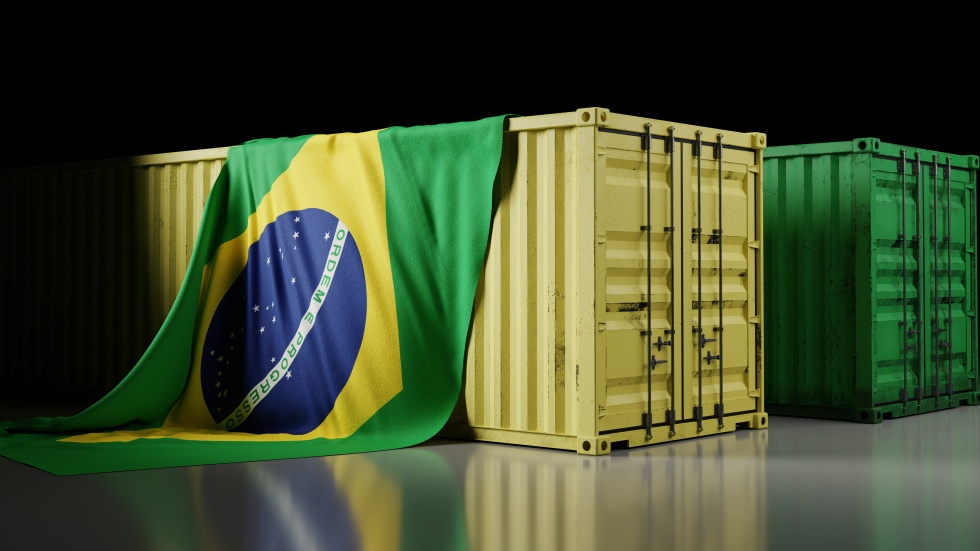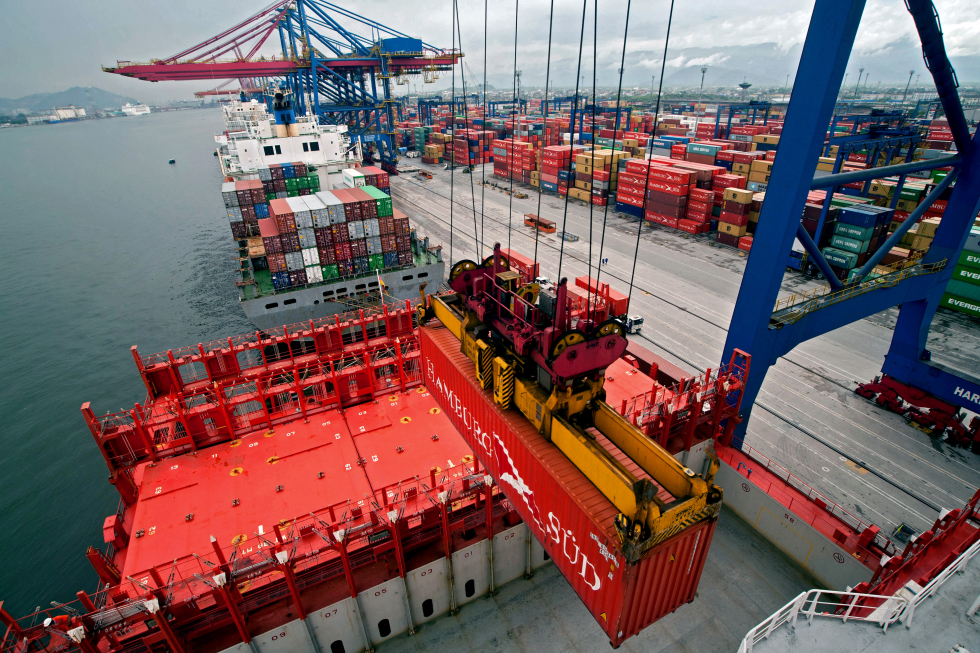Strategic Insights into Brazil Imports and Exports for Global Expansion
Navigate Brazil's dynamic trade landscape. Discover key trends, opportunities, and challenges in Brazil's imports and exports for business growth.

Brazil's imports and exports global trade arena are marked by significant figures, with total exports of USD 280.8 billion and imports reaching USD 234.7 billion in 2021. This robust trade activity is a testament to Brazil's position as a key player on the world stage. Moreover, the positive trade balance of USD 19.2 billion in goods and services showcases the nation's resilience in maintaining a favorable economic standing, despite global uncertainties.
Key Trade Figures
- Total Exports (Goods): USD 280.8 billion
- Total Imports (Goods): USD 234.7 billion
- Trade Balance (Goods and Services): USD 19.2 billion
- Foreign Trade as a Percentage of GDP: 39.3%
Brazil's Exports: A Diverse Portfolio in Global Demand
The diversity of Brazil's export portfolio illustrates the multifaceted nature of its economy. In 2022, soybeans led the charge, constituting 14.0% of total exports, closely followed by petroleum oils (12.8%) and iron ores (8.6%). This variety in exports positions Brazil as a versatile player in global markets, catering to a range of industries and consumer needs.
1. Soybeans (14.0% of Total Exports)
Soybeans constitute a significant portion of Brazil's exports, making up 14.0% of the total. Brazil's dominance in soybean production positions it as a key supplier globally. These versatile legumes are not only crucial for various food products but also play a pivotal role in the animal feed industry.
2. Petroleum Oils (12.8% of Total Exports)
Brazil's export profile includes petroleum oils, representing 12.8% of total exports. This category encompasses a range of oil-based products, from crude oil to refined petroleum, contributing significantly to the country's economic output.
3. Iron Ores (8.6% of Total Exports)
The export of iron ores accounts for 8.6% of Brazil's total exports. As a major global player in the iron ore market, Brazil's shipments contribute to the production of steel worldwide. The country's vast iron ore reserves make it a key supplier in this critical industry.
4. Petroleum Oils (additional category - 3.9% of Total Exports)
In addition to the broader category of petroleum oils, Brazil exports specific types of petroleum products, constituting 3.9% of total exports. These products include refined oils, providing a diverse range of energy sources for global consumption.
5. Maize or Corn (3.7% of Total Exports)
Brazil's export portfolio extends to agricultural products like maize or corn, representing 3.7% of total exports. This versatile grain serves as a staple in various industries, from food and feed production to ethanol manufacturing.
Key Export Markets
- China (26.8%): A significant portion of Brazil's exports, including soybeans and iron ores, finds a major market in China.
- United States (11.4%): Brazilian exports, especially in the agricultural sector, make their way to the United States.
- Argentina (4.6%): Proximity and economic ties contribute to Argentina being a noteworthy trade partner for Brazil.
- Netherlands (3.6%): The Netherlands serves as a gateway to European markets for Brazilian exports.
- Spain (2.9%): Spain, with its diverse economy, engages in trade with Brazil across various sectors.

Brazil's Imports: Strategic Acquisitions and Global Collaborations
Strategic import choices contribute to Brazil's economic growth, with goods like petroleum oils, parts and accessories for tractors and motor vehicles, and human and animal blood featuring prominently in the import landscape. This balanced approach, combining industrial and consumer goods, reflects Brazil's commitment to meeting domestic needs while fostering collaborations with global suppliers.
1. Petroleum Oils (8.4% of Total Imports)
Brazil imports petroleum oils, constituting 8.4% of its total imports. As a country with a growing demand for energy, Brazil relies on imports to meet its domestic requirements for various petroleum-based products.
2. Parts and Accessories for Tractors, Motor Vehicles (2.8% of Total Imports)
The import of parts and accessories for tractors and motor vehicles plays a crucial role in Brazil's industrial and agricultural sectors, contributing 2.8% to total imports. These components support the country's manufacturing and transportation industries.
3. Human and Animal Blood (3.0% of Total Imports)
Brazil imports human and animal blood products, representing 3.0% of total imports. These products are often used in the medical and pharmaceutical sectors for therapeutic, prophylactic, or diagnostic purposes.
4. Petroleum Gas and Gaseous Hydrocarbons (2.7% of Total Imports)
Petroleum gas and gaseous hydrocarbons contribute 2.7% to Brazil's total imports. These imports are integral to meeting the country's energy needs and supporting various industries.
5. Mineral or Chemical Fertilisers (2.5% of Total Imports)
Importing mineral or chemical fertilizers constitutes 2.5% of Brazil's total imports. This category is essential for the country's agricultural sector, ensuring the fertility of its vast expanses of farmland.
Key Import Suppliers
- China (23.2%): Brazil imports a significant portion of goods, including machinery and consumer products, from China.
- United States (18.6%): Machinery, technology, and industrial goods contribute to Brazil's imports from the United States.
- Argentina (4.7%): Proximity and economic cooperation lead to substantial imports from Argentina.
- Germany (4.6%): Brazil sources machinery, technology, and industrial equipment from Germany.
- India (3.3%): India's diverse export offerings contribute to Brazil's import portfolio.
In summary, Brazil's import and export goods represent a broad spectrum, ranging from agricultural products to industrial goods, reflecting the country's diverse economy and its role as a significant player in global trade.
Factors Influencing Brazil's Trade
Brazil's trade dynamics are influenced by a myriad of factors that shape the nation's economic interactions on the global stage.
Economic Policies
- Trade Agreements: Brazil's involvement in regional and global trade agreements influences market access and trade conditions. Negotiations and agreements with partners impact the ease of doing business.
- Tariffs and Trade Barriers: The imposition or reduction of tariffs and trade barriers significantly influences the cost and ease of conducting international trade. Brazil's policies in this regard have a direct impact on trade dynamics.
Currency Exchange Rates
Fluctuations in currency exchange rates can impact the competitiveness of Brazilian goods in international markets. A favorable exchange rate enhances export competitiveness, while an unfavorable one may lead to challenges for exporters.
Global Market Trends
- Technological Advancements: Brazil's adaptation to technological trends is crucial for maintaining competitiveness in various industries. Innovations in production processes and digitalization can enhance the country's competitive edge.
- Environmental Concerns: Increasing global awareness of sustainability impacts consumer preferences. Brazil's efforts to align with environmentally friendly practices can influence demand for its products in international markets.
Challenges and Opportunities
As Brazil navigates the intricate landscape of international trade, it faces both challenges and opportunities that shape its economic trajectory.
Challenges
- Trade Deficits and Surpluses: Fluctuations in commodity prices and economic conditions contribute to trade imbalances. Managing these imbalances becomes crucial to sustaining a positive trade scenario.
- Competitiveness: The decline in the competitiveness of Brazilian products poses a challenge to maintaining a positive trade balance. Enhancing productivity and innovation are key factors in overcoming this challenge.
Opportunities
- Diversification: Opportunities arise for Brazil to diversify its export portfolio, reducing dependence on specific commodities. Exploring new markets and product categories can provide avenues for growth and resilience.
- International Collaborations: Initiatives with the European Union and China present opportunities for expanded market access. Collaborative efforts and agreements can lead to increased trade volumes and economic growth.
Explore Opportunities on the Export Portal
Brazil's imports and exports represent a broad spectrum, ranging from agricultural products to industrial goods, reflecting the country's diverse economy and its role as a significant player in global trade.
As businesses and investors seek new opportunities in the dynamic world of international trade, the Export Portal stands as an invaluable platform. With Brazil's vibrant and diverse trade landscape, the Export Portal offers a gateway to connect with potential partners, explore new markets, and capitalize on the numerous opportunities that abound.
Unlock the potential of your trade endeavors by engaging with the Export Portal, where the world of commerce converges, and opportunities await. Join us in shaping the future of global trade dynamics on the Export Portal today!






Comments 0